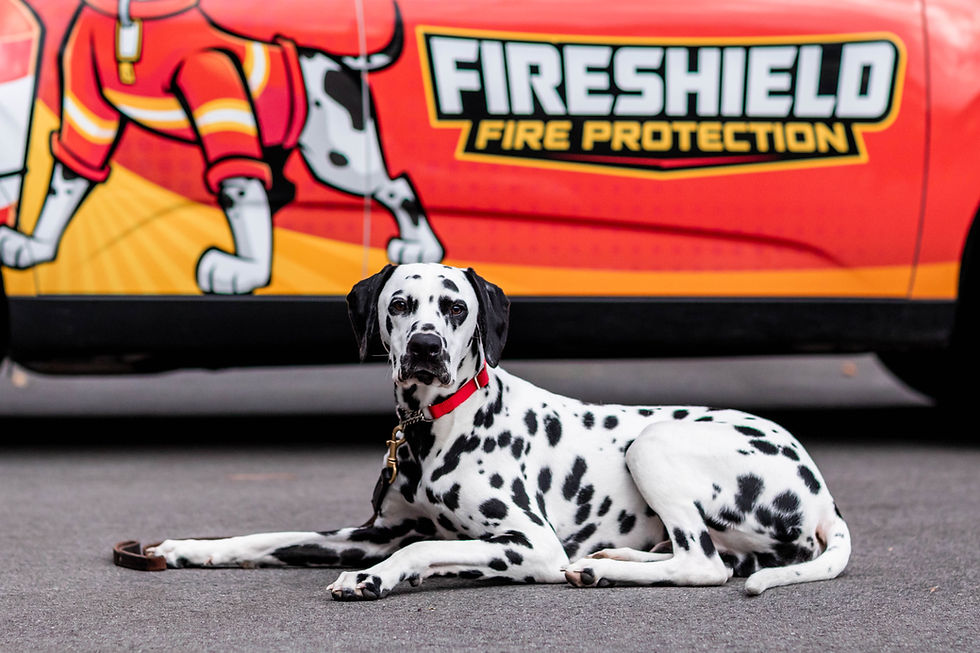Food Truck Fire Prevention
- fireshieldfireprot9
- Jun 23, 2024
- 3 min read
The popularity of food trucks is soaring in cities across the country, including Jacksonville. Until recently, there were no National Fire Protection Association (NFPA) codes related to food truck fire safety. But in July 2014, disaster struck a food truck in Philadelphia. Gas from a leaking propane tank ignited, and the resulting explosion killed the mother/daughter truck operating team and injured 10 bystanders, some critically.
Spurred by this tragic accident, a new chapter of NFPA 96 – Standard for Ventilation Control and Fire Protection of Commercial Cooking Operations – was added. The standards specifically address food truck safety and were just released in February 2017.
If you own and operate a food truck, remember that you’re dealing with open flames, cooking equipment, electrical connections, and cooling oils, just like a brick-and-mortar restaurant. On top of this, you also have engine oil and a cramped workspace to contend with. Food Truck Fire Prevention

A fire could devastate your food truck business and even put your life at risk. To help you stay safe, follow these food truck fire prevention tips.
Take Steps to Prevent a Food Truck Fire
1. Install an automatic fire suppression system: More than half of food service fires involve cooking equipment. Automatic fire suppression shuts down the fuel supply and douses the fire with chemicals to extinguish the blaze quickly and efficiently.
2. Keep portable fire extinguishers within reach: Class K fire extinguishers serve as a valuable backup if the automatic suppression system fails.
3. Regularly maintain electrical and cooking equipment: Routine inspections can help you identify and correct safety hazards, such as frayed cords, cracked switch plates, and combustible items stored near fuel sources.
4. Schedule exhaust hood inspections to remove grease buildup: NFPA 96 requires grease removal monthly, quarterly, or semi-annually depending on your cooking volume and whether you cook with solid fuel (wood or charcoal).
Train Your Food Truck Staff in Fire Safety Basics
For maximum fire safety, make sure your staff members:
- Know never to throw water on a grease fire: This only causes the grease to splatter and spread the flames.
- Feel comfortable using a fire extinguisher: Professional fire extinguisher training is the best way to get your staff members comfortable with fighting small food truck fires. Train new employees immediately and provide a yearly refresher course for everyone.
- Dispose of ashes properly: If you use wood- or charcoal-burning ovens, remove the ashes at least once a day.
- Store flammable liquids safely: Keep them in their original containers and in a well-ventilated place away from combustible items and sources of heat.
- Keep the food truck tidy: Regularly clean the cooking area, work surfaces, and walls of grease. Store paper products away from sources of flame and heat. Dispose of trash at least once a day.
- Use chemicals correctly: Only use chemical cleaning products and solutions in well-ventilated areas, and clean up spills immediately.
- Prepare for an emergency: Designate one staff member per shift as the Evacuation Manager. This person is responsible for declaring when an evacuation is necessary and calling 911. Also, make sure at least one person on each shift knows how to shut off the cooking fuel in case of an emergency.
For the best fire extinguisher service and comprehensive fire protection solutions in Jacksonville, contact Fire Shield Fire Protection today at (https://fireshieldjax.com) or call 904-219-7719. Take action now to protect your food truck and ensure the safety of your staff and customers!



